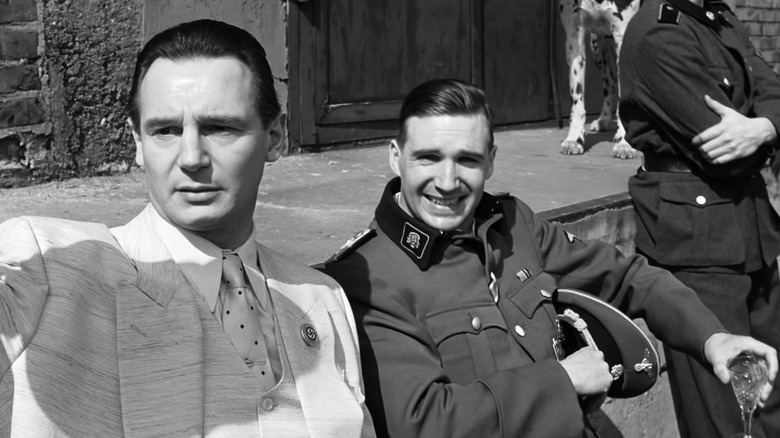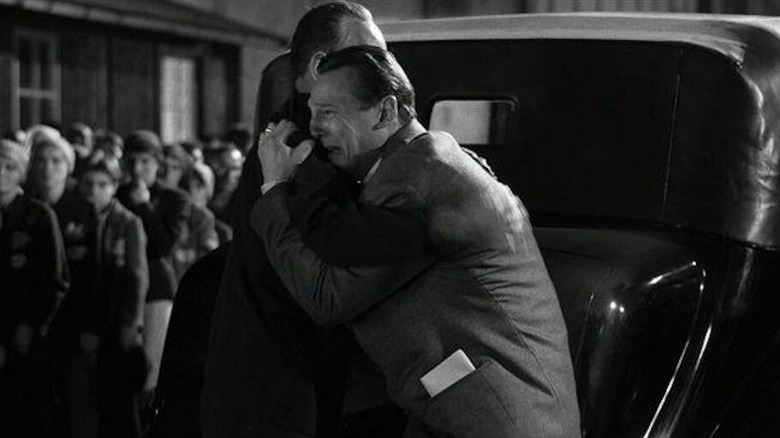There's One Element Of Schindler's List That Director Steven Spielberg Still Doesn't Understand
There were movies about the Holocaust long before "Schindler's List." Superb movies. George Stevens' "The Diary of Anne Frank," Stanley Kramer's "Judgment at Nuremberg," Alan J. Pakula's "Sophie's Choice," and Paul Mazursky's "Enemies, a Love Story" (to name but a few) grappled with this staggeringly evil, carefully coordinated campaign of genocide so that moviegoers could, hopefully, comprehend how ordinary people could become bigoted, bloodthirsty monsters. The answers weren't comforting, but we couldn't move forward as a species without them.
Aside from the "how," there was another agonizing question that needed to be answered, one that was not as easy to dramatize: why didn't more people step up to stop this?
It doesn't take a great deal of research to realize that most good people were paralyzed by a mixture of cowardice and self-preservation. And while it is vital that we keep hammering home this observation for future generations, dramatically, it does get a tad wearying to always be arriving at the same conclusion.
This is what sets "Schindler's List" apart: Spielberg isn't asking why good people did nothing; he's wondering why this one man, hardly a saint and, for most of his young life, far from a humanist, risked his life and fortune to spare the lives of his Jewish employees. It is a fascinating perspective from which to consider the immoral silence of too many Eastern European gentiles. For Spielberg, it was the major dramatic question that drove the film's narrative, and, while discussing the movie several decades later, a query he failed to answer to his satisfaction.
Spielberg couldn't find Schindler's Rosebud
In The Hollywood Reporter's recently published oral history of the making of "Schindler's List," Spielberg confessed that he struggled with his adaptation of Thomas Keneally's book (originally titled "Schindler's Ark"). His first challenge was purely practical: was there a compelling story nestled within Keneally's dry-ish account? "I wasn't sure if I could get a script developed from the book," he said. "The book didn't have a narrative that was obvious to the naked eye. It was full of names, facts, dates, and times — certification of authenticity."
Clearly, he got around this conundrum. But this left him to ponder the question of "Schindler's List," and this was quite a struggle:
"The great mystery, though, which I could never solve when I read it, was: Why did Schindler do this? Why did he risk his life and spend nine percent of the money he'd amassed to buy his workers back from [Kraków-Płaszów concentration camp commandant] Amon Göth and eventually bring them to freedom?"
He concluded his thoughts on this subject by dropping one of the greatest Hollywood humblebrags I've ever read:
"Every time I look at my Rosebud sled hanging on the wall, I think, 'I never had the Rosebud moment for 'Schindler's List' that Orson Welles found for 'Citizen Kane.”"
He did, however, accomplish something with "Schindler's List" that eluded Welles in "Citizen Kane." He won Oscars for Best Picture and Best Director. Orson probably would've taken those trophies over a child's sled.

